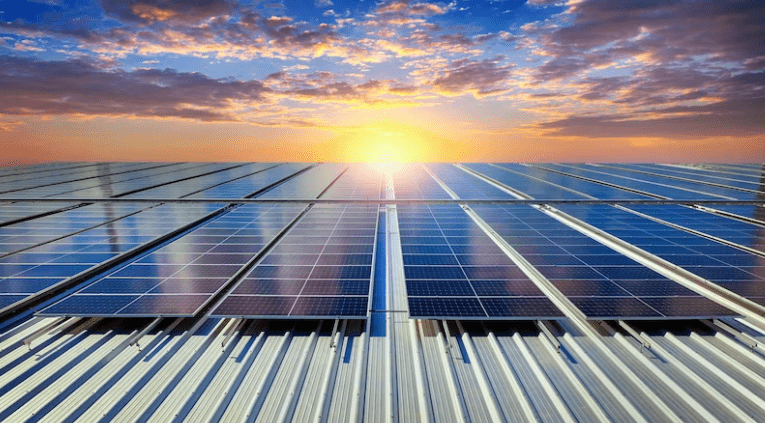
As the world continues to face the severe consequences of climate change and environmental degradation, renewable energy solutions are gaining increasing importance. Among these, solar panel have emerged as a cornerstone technology in the transition toward a greener, more sustainable future. These systems not only provide clean and renewable energy but also contribute significantly to environmental preservation, economic development, and social progress. This article delves deep into how solar panels contribute to a sustainable future, exploring both their environmental benefits and the broader impacts they create.
Reducing Greenhouse Gas Emissions
One of the most critical advantages of solar panels is their ability to reduce greenhouse gas emissions. Traditional energy sources, particularly fossil fuels like coal and natural gas, release massive amounts of carbon dioxide (CO₂) and other harmful gases into the atmosphere. These emissions are the primary drivers of global warming and climate change.
Solar energy, on the other hand, produces electricity without any direct emissions. Once installed, solar panels generate power using sunlight, eliminating the need for burning fossil fuels. According to multiple studies, even a single residential solar system can offset tons of CO₂ over its lifetime. On a larger scale, widespread solar adoption can drastically cut national and global carbon footprints.
Decreasing Air and Water Pollution
In addition to reducing greenhouse gases, solar panels also help in cutting down other forms of pollution. The burning of fossil fuels not only contributes to climate change but also releases pollutants like sulfur dioxide, nitrogen oxides, and particulate matter, which can severely degrade air quality. These pollutants are linked to respiratory illnesses, cardiovascular problems, and even premature deaths.
Solar panels operate silently and cleanly, emitting no pollutants into the air. Furthermore, solar energy production requires significantly less water than conventional power plants, which use large quantities for cooling and other processes. By conserving water and reducing the release of toxic substances into the air and waterways, solar energy supports a healthier environment and public well-being.
Promoting Energy Independence
Another major contribution of solar panels to a sustainable future lies in their role in enhancing energy independence. Many countries heavily rely on imported fossil fuels to meet their energy needs, making them vulnerable to geopolitical tensions and supply disruptions.
With solar panels, communities and nations can harness energy locally from the sun, reducing dependence on foreign energy sources. This shift not only improves energy security but also allows for more stable and predictable energy pricing. In times of global uncertainty or economic instability, solar energy provides a reliable and resilient power source.
Empowering Local Economies and Job Creation
The solar industry has become a powerful engine of economic growth. As demand for solar energy rises, so does the need for skilled professionals in manufacturing, installation, maintenance, and system design. Solar energy projects, both residential and commercial, create thousands of jobs in local communities.
Unlike fossil fuel plants that often rely on centralized infrastructure and limited labor, solar panel installations are decentralized and labor-intensive, supporting a wide range of employment opportunities. This local economic stimulation contributes directly to social sustainability by reducing poverty, improving living standards, and encouraging community development.
Minimizing Habitat Destruction
Fossil fuel extraction often leads to extensive land degradation, deforestation, and ecosystem destruction. Mining for coal, drilling for oil, and hydraulic fracturing (fracking) all disrupt natural habitats and threaten biodiversity. Even traditional hydropower systems can lead to the displacement of communities and wildlife.
In contrast, solar panel systems, particularly rooftop installations, have a minimal impact on land use and ecosystems. They can be integrated into existing buildings, parking structures, and brownfield sites, thereby preserving natural landscapes. Even utility-scale solar farms, when planned carefully, can coexist with agricultural use or be situated on non-arable land, further minimizing environmental disruption.
Enhancing Energy Access in Remote Areas
One of the more profound ways in which solar panels contribute to a sustainable future is by improving access to electricity in off-grid and remote regions. In many parts of the world, especially in developing countries, reliable electricity remains a luxury. Lack of access limits education, healthcare, communication, and economic opportunities.
Solar panels can be deployed in modular systems, making them ideal for remote or underserved communities. These systems bring immediate benefits, such as lighting, refrigeration for medicine, and power for schools and water pumps. By enabling self-sufficient energy generation, solar panels help bridge the energy gap, fostering greater equality and social sustainability.
Advancing Technological Innovation
The push for solar energy has spurred remarkable technological progress. Advances in photovoltaic efficiency, battery storage, and smart grid integration are not only improving the performance of solar systems but also benefiting the broader energy landscape. These innovations enable the development of microgrids, energy-sharing platforms, and resilient infrastructure that are crucial in the face of climate-related disruptions.
Moreover, the integration of solar energy with digital technologies like artificial intelligence and the Internet of Things (IoT) is creating more efficient and intelligent energy systems. These innovations promote better energy management, reduce waste, and further lower environmental impact.
Driving Sustainable Urban Development
Urban areas are major consumers of energy and resources, and they are also at the forefront of climate challenges. Solar panels can play a vital role in making cities more sustainable. Incorporating solar technology into building designs, public infrastructure, and transportation systems helps reduce urban carbon footprints.
Green buildings equipped with solar panels not only save on energy bills but also contribute to cleaner air and lower heat emissions. Solar-powered street lighting, electric vehicle charging stations, and solar-integrated public transport systems are practical examples of how cities can harness solar energy for environmental and economic benefits.
Encouraging Sustainable Consumer Behavior
As more people adopt solar panels, awareness and engagement in sustainability also increase. Homeowners who invest in solar energy often become more conscious of their overall energy consumption. This shift in mindset encourages further adoption of energy-efficient appliances, conservation habits, and lifestyle changes that support long-term sustainability.
Furthermore, visible solar infrastructure serves as a powerful educational tool and social symbol, inspiring others in the community to consider renewable options. This ripple effect contributes to a cultural shift toward environmental responsibility and long-term thinking.
Beyond the Environment: A Holistic Impact
While the environmental benefits of solar panels are profound, their impact extends far beyond nature. They represent a pivotal solution to many of the world’s interconnected challenges — from climate action and public health to economic development and social equity. By reducing emissions, preserving ecosystems, creating jobs, and empowering communities, solar panels are a catalyst for a truly sustainable future.
In conclusion, the role of solar panels in building a sustainable future cannot be overstated. They provide a clean, renewable, and increasingly affordable source of energy that supports environmental conservation and promotes holistic development. As technology continues to improve and public awareness grows, the widespread adoption of solar panels will remain a vital step toward achieving global sustainability goals. The time to embrace solar energy is now — not just for the planet, but for generations to come.

